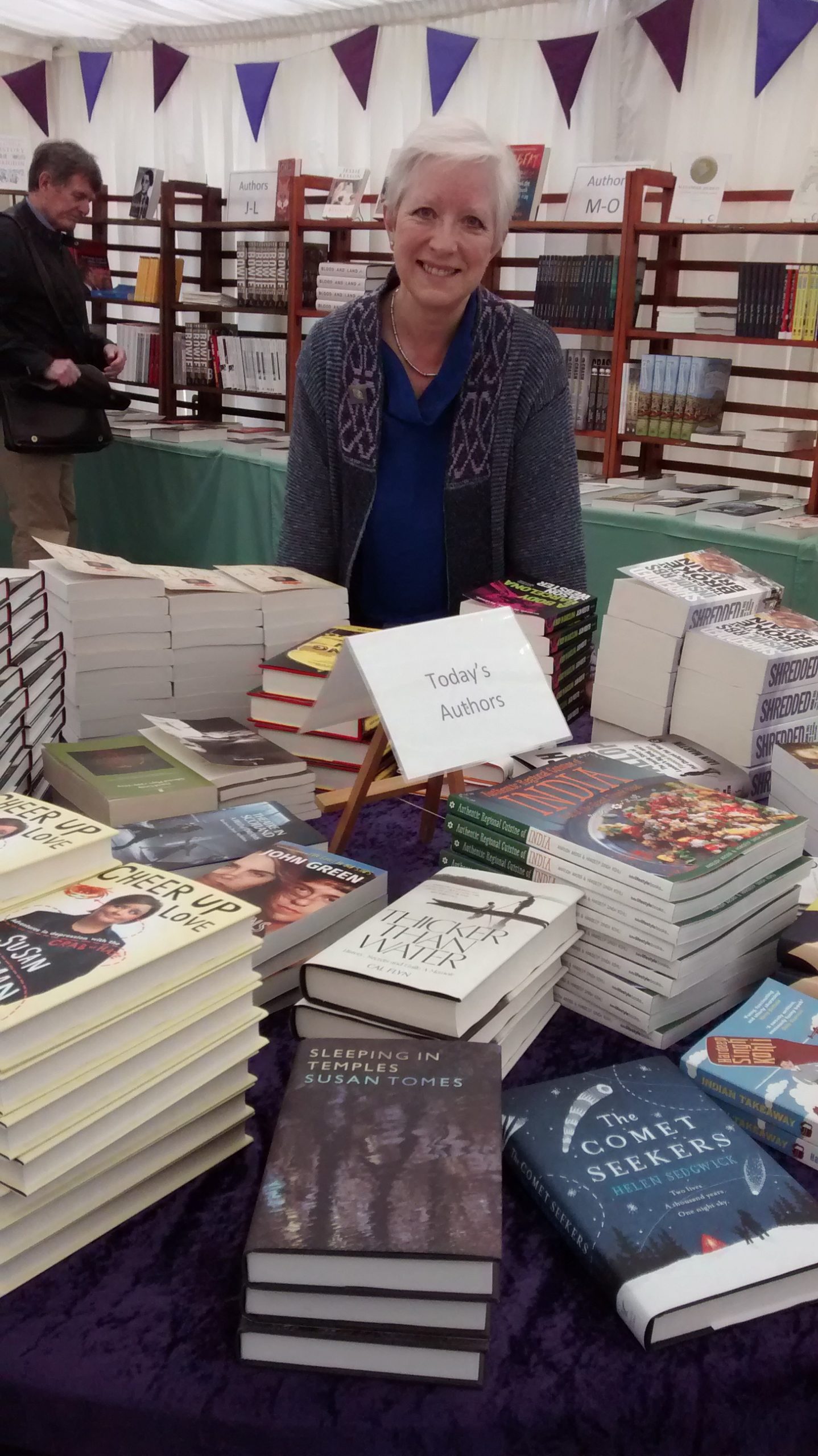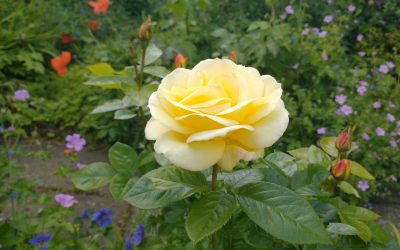 Yesterday I spoke about my book ‘Sleeping in Temples’ at the Wigtown Book Festival (see photo), a merry gathering in ‘Scotland’s Book Town’ in the rolling hills of Dumfries and Galloway. Arriving there for the first time in driving rain and wind wasn’t the perfect introduction, but when the sun came out I was better able to appreciate the main square with its improbable number of attractive bookstores.
Yesterday I spoke about my book ‘Sleeping in Temples’ at the Wigtown Book Festival (see photo), a merry gathering in ‘Scotland’s Book Town’ in the rolling hills of Dumfries and Galloway. Arriving there for the first time in driving rain and wind wasn’t the perfect introduction, but when the sun came out I was better able to appreciate the main square with its improbable number of attractive bookstores.
For the talk, my interviewer Robert Philip wanted to include my chapter on ‘What is Interpretation?’ He suggested I take a short example and illustrate – with the help of a piano – some of the issues a player has to consider when preparing the music for performance.
I chose the opening passage of Beethoven’s fourth piano concerto. As far as I know, it’s the first concerto which turned the usual format upside-down: instead of a long orchestral introduction, followed by the piano soloist entering with a dramatic flourish, Beethoven starts with the piano on its own. The first six bars of solo piano are marked to be played quietly and gently.
What is one to make of that? What scene is the pianist setting as they play the now-famous opening theme? Is it in the nature of private musing, as though the performer didn’t realise there was a big orchestra sitting behind them? Is it a kind of challenge to the orchestra? Is the pianist allowed to take time and linger over certain beats, or will that confuse matters? Are the little repeated notes to be dry, matter-of-fact, or tentative, mysterious – even pleading? Should the famous opening G major chord be played with all the notes going down at the same time, or ‘rolled’ from bottom to top as Beethoven may have expected to hear it? And so on.
I did a brief illustration, showing different ways to play the theme. Afterwards, at the book signing, a number of people told me how fascinating they found that demonstration. They said it was very hard to get access to this kind of behind-the-scenes information if you are not a musician. They suggested I should do more of it, and I’m going to think about doing so.




0 Comments